Its the Summer Time and Living is Easy Song
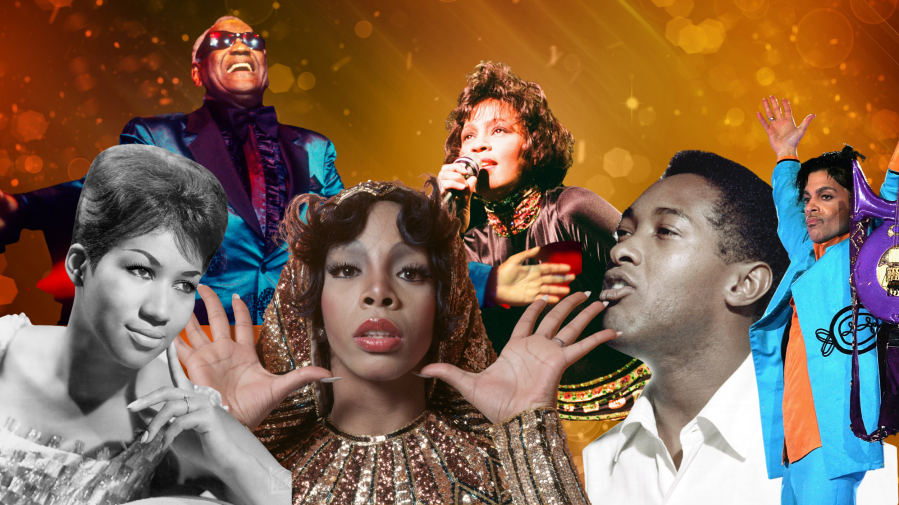
Summer is the perfect time to turn up the volume on a throwback playlist. A good summer playlist offers an escape from the present and an invitation to enjoy the simple life. Throwback songs offer a special sort of escape, initiating a nostalgic trip down memory lane with the first few chords.
Then there are the throwback songs powerful enough to shape the music industry, wider culture, and influence the political thought of a generation. Some of these songs made history as soon as they hit the airwaves, and for others, their impact was only understood years after they became hits.
If you're eager to curate a throwback playlist for your summer, consider these history-making songs, and enjoy their cool beats and cultural significance.
Sam Cooke, "A Change is Gonna Come" (1964)
"A Change Is Gonna Come" by Sam Cooke speaks directly to the struggles Sam Cooke and other African Americans faced during the civil rights movement. It's been reported that Cooke's civil-rights-themed protest song was deeply inspired by Bob Dylan's "Blowin' in the Wind". The song's lyrics include testimonies of life in a segregated country, and question the promise of salvation after death, imploring listeners to fight for a better world for the living
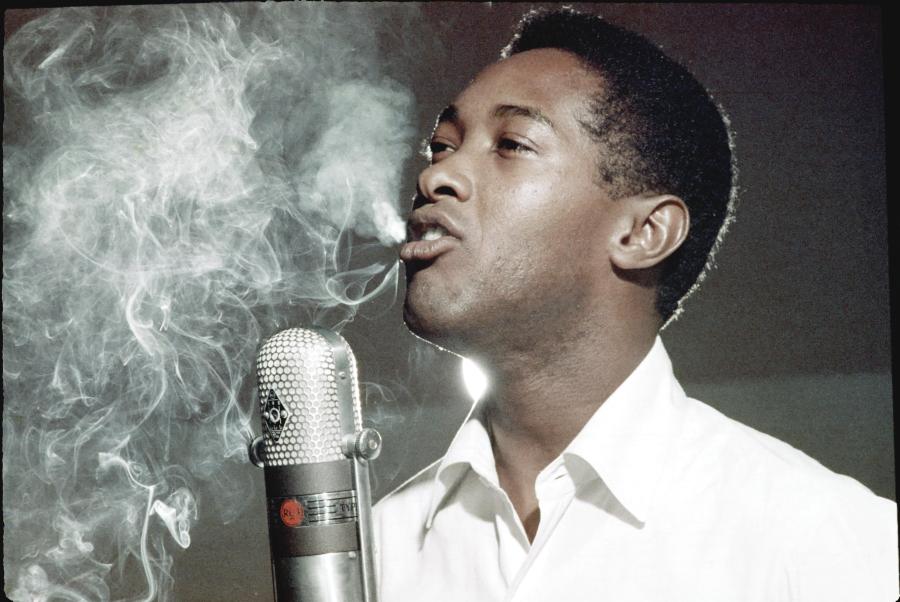
Two weeks before the song was released, Cooke was shot in the chest and killed at a motel by the motel's manager. She had claimed self-defense, but it was widely disputed. After his death, the song became even more important to the Civil Rights Movement.
The popularly known "La Bamba" by Ritchie Valens kicks off our list of history-making songs for your summer throwback playlist. It is a happy song of Mexican folklore that existed long before Ritchie made it popular. Ritchie's up-tempo rock version hit the Billboard charts hard and fast in 1958. It was the first-ever Spanish song to perform so well at the time, and it made history as the first major crossover hit from Mexico to the world.
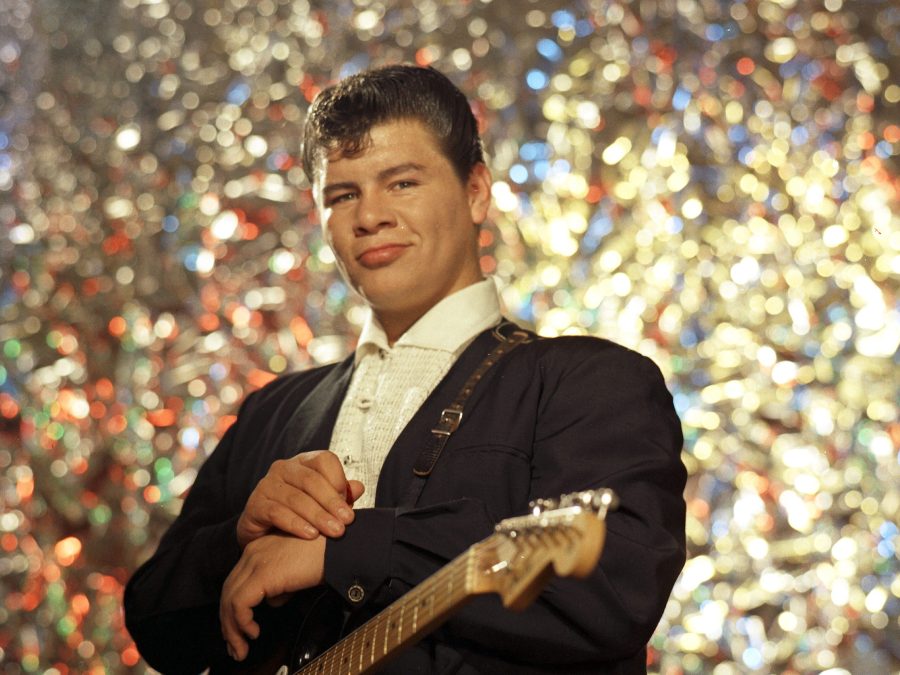
This popularity came despite the fact that Valens didn't speak Spanish– a fact that would likely give listeners of today pause, now that the concept of cultural appropriation has become mainstream. We suggest you grab Valens' version and a versions by a Spanish-speaking artist for your playlist.
Unfortunately, on February 3, 1959, Valens, Buddy Holly and J.P. "The Big Bopper" Richardson were killed in a plane crash. The tragic event later became known as "The Day the Music Died."
The Mamas and The Papas, "California Dreamin'" (1965)
The groovy foursome was a leader in the countercultural movement of the '60s, blending folk and gospel with rock music. "California Dreamin'" was the upbeat song that channeled America's collective longing for change during a time of revolutionary challenges to the country. Since it's release, you may have heard it play in popular media like "Forrest Gump" or the TV show "Californication"?
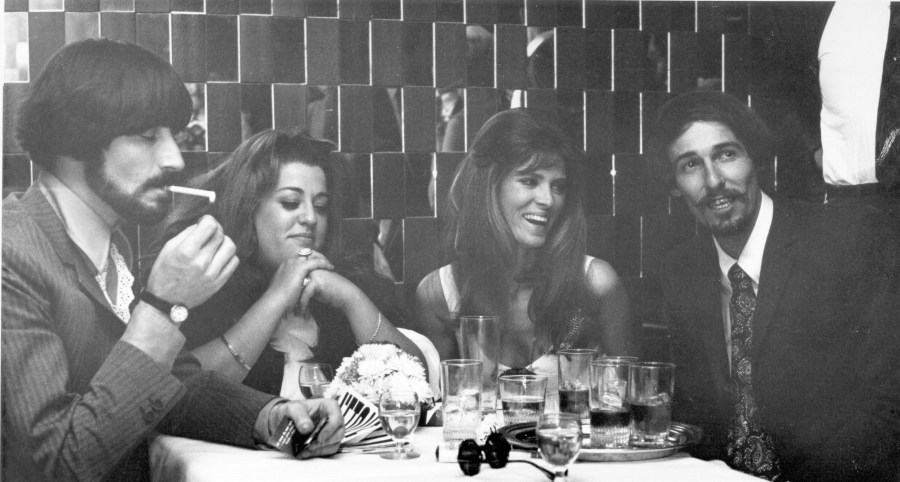
The song was emblematic of the struggle to escape the nation's divisive issues. The Vietnam War and the Civil Rights Movement caused divides among families and communities. But with lyrics about retreating to sunny and relaxing California, often idealized in beach music and movies, America fell in love with The Mamas and The Papas's new sound.
Aretha Franklin, "Respect" (1967)
Aretha Franklin is an icon in the music industry known widely for her song "Respect," a towering giant on the list of history-making feminist songs. Otis Redding originally wrote the song in 1965 as a plea for respect from the woman he loved. Aretha Franklin's 1967 rendition flipped the narrative on its head and catapulted the song to music history fame. It is largely considered to be the best R&B song of all time.
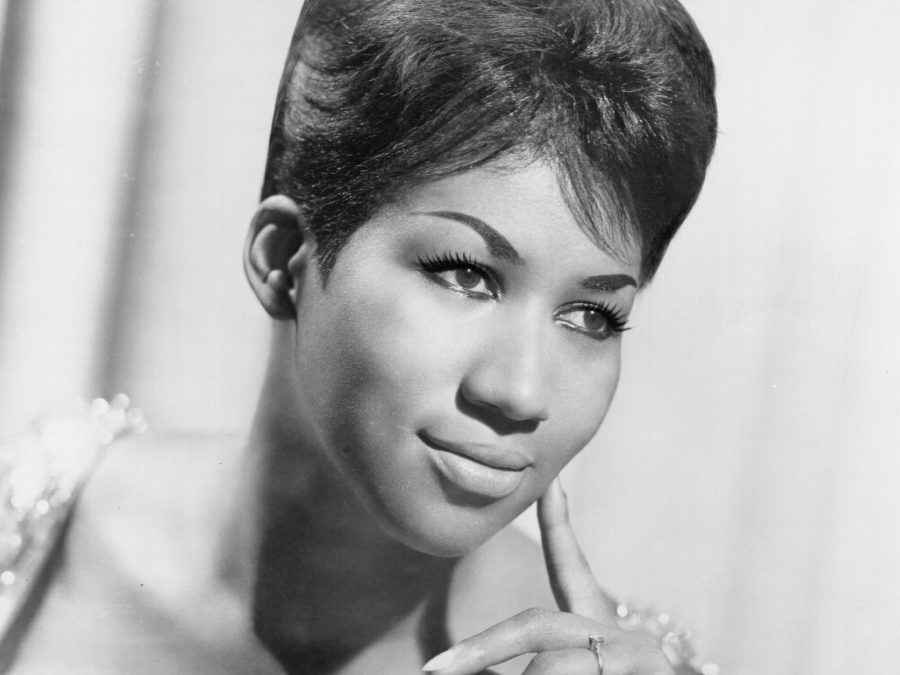
At a time when discrimination and racism was forefront in the music industry and across the country, "Respect" gave permission to both Black femme singers and activists in the street who were all demanding respect. Maybe you need similar permission this summer, in which case, this song deserves a spot on your throwback playlist.
Queen, "Bohemian Rhapsody" (1975)
The epic rock ballad is one of the highest selling songs ever and perfectly encapsulated the hard guitar sounds that were popular at the time. Queen was able to distinguish their sound from contemporaries like Led Zeppelin, Heart, and Pink Floyd with songs like "Bohemian Rhapsody".
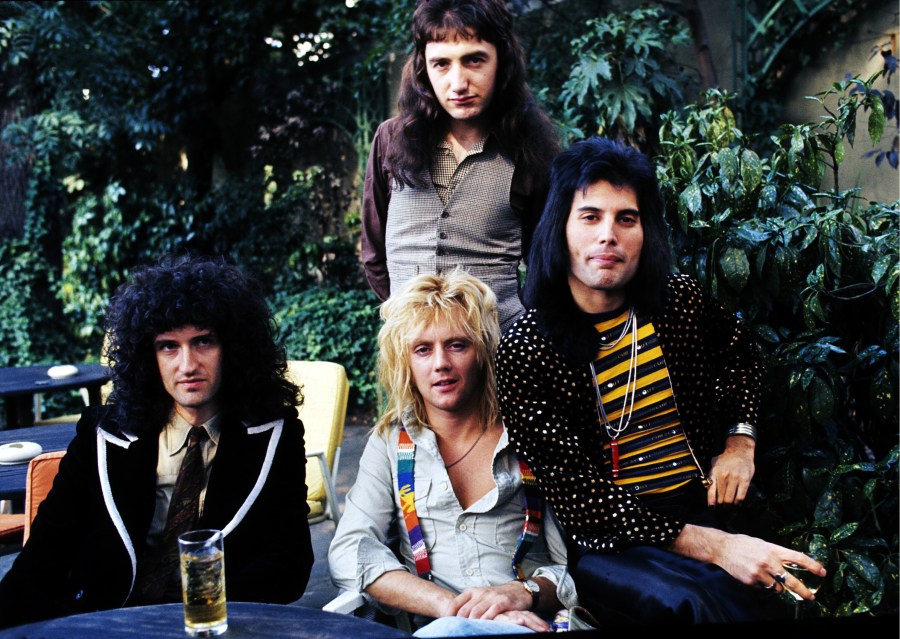
Running just under six minutes, the track takes operatic, hard rock and dramatic shifts to elevate it above all other rock songs of the decade. We don't need SNL's Wayne's World friends Wayne and Garth to remind us how great the song is. But it certainly helped introduce the song to another generation of instant fans.
Freddie Mercury, writer of the song and lead singer of Queen, never explained the lyrics. While there's plenty of speculation as to what they actually mean, we love this as a throwback song for your playlist precisely because you can make this mean whatever you need it to this summer.
Sex Pistols, "God Save The Queen" (1977)
Did you know that "God Save the Queen" is the national anthem of the United Kingdom? If you didn't, that might change how you understand the song of the same name that the Sex Pistols released as protest song against the British Monarchy.
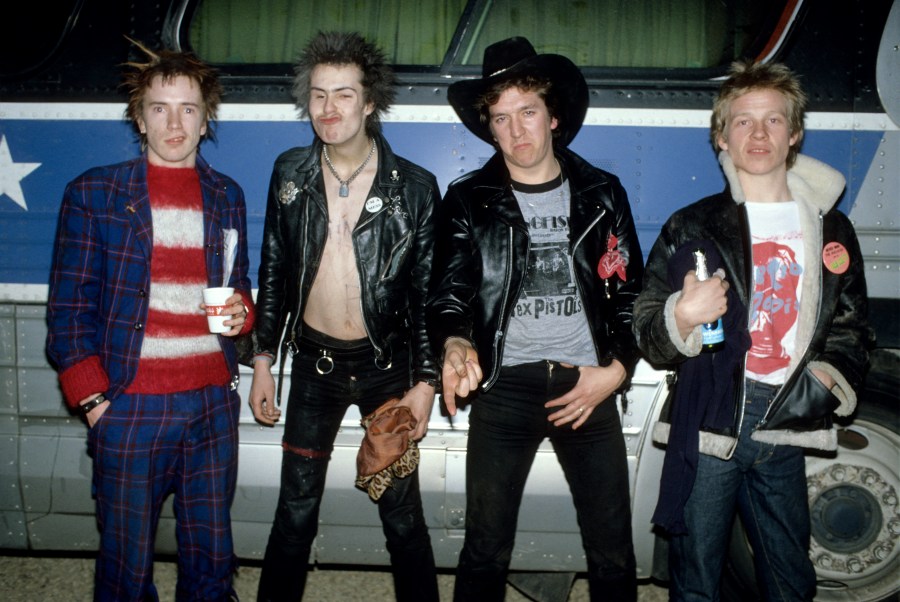
The song was a rallying cry to stop the mistreatment of poor and middle-class citizens. Comparing the queen to a "fascist regime" caused the song to be banned and condemned on radio stations, but that only made the demand greater for the punk sound.
In (dis)honor of the Queen's 2022 Platinum Jubilee, the band re-released the song, and guitarist Steve Jones went on the record to say that he's never cared for the monarchy.
Prince, "Purple Rain" (1984)
The eponymous movie, soundtrack, and song are the greatest opportunity fans will likely ever have to know the man behind the legend. "Purple Rain" was the only film that Prince starred in but did not direct, but it was still his most revealing artistic moment. Historically, it was the first, full-length autobiographical rock musical film to further launch its star's career.
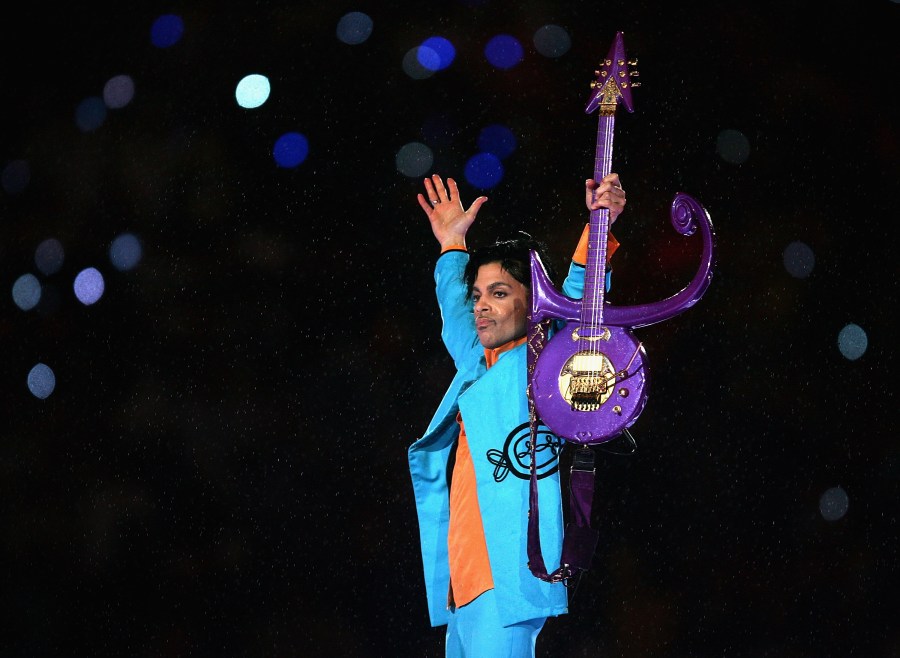
"Purple Rain" lets fans glimpse the artist's life beyond the stage lights. The film's pinnacle moment was the title track, which combined gospel, R&B, rock and orchestral music. The song captured people's hearts with a unique mix of gospel, rock, orchestral, and R&B. When Prince, a queer icon despite his conservatism, passed away in 2016, fans worldwide played "Purple Rain" in remembrance.
Public Enemy, "Fight The Power" (1989)
"Fight the Power" incorporates various samples and references to African American culture, social injustices, and black church services. The song's lyrics contain revolutionary rhetoric calling the listener to "fight the powers that be." It became a successful hit that called on the black community to become more politically active.
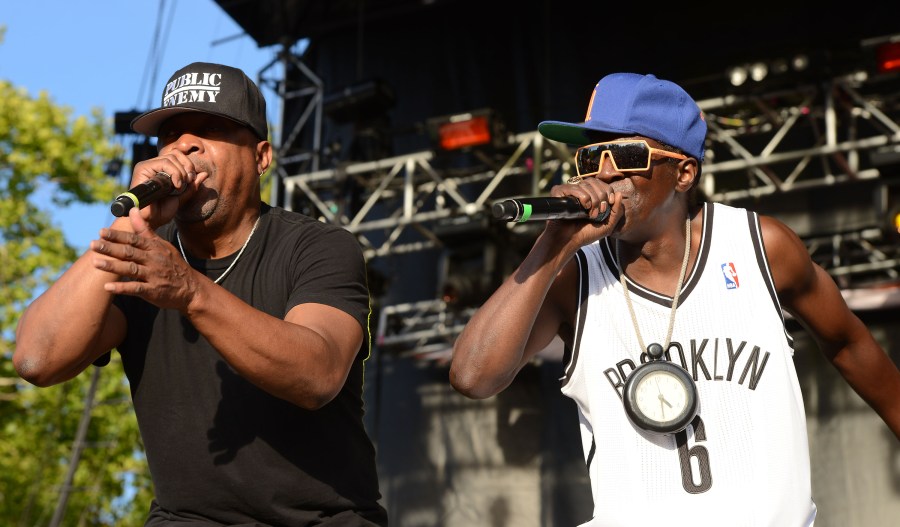
This protest song left major political waves in its wake by speaking up against racial injustice. The lyrics celebrate freedom of speech and revolutionary action, and condemn artists like Elvis and John Wayne (and pretty much the entire catalog of beloved American heroes) for racism.
Nirvana, "Smells Like Teen Spirit" (1991)
In the late '80s and early '90s, arena rock was full of instrumental theatrics and big-haired band members. And then came Nirvana with "Smells Like Teen Spirit" which is credited as the first alternative song to cross into mainstream success.
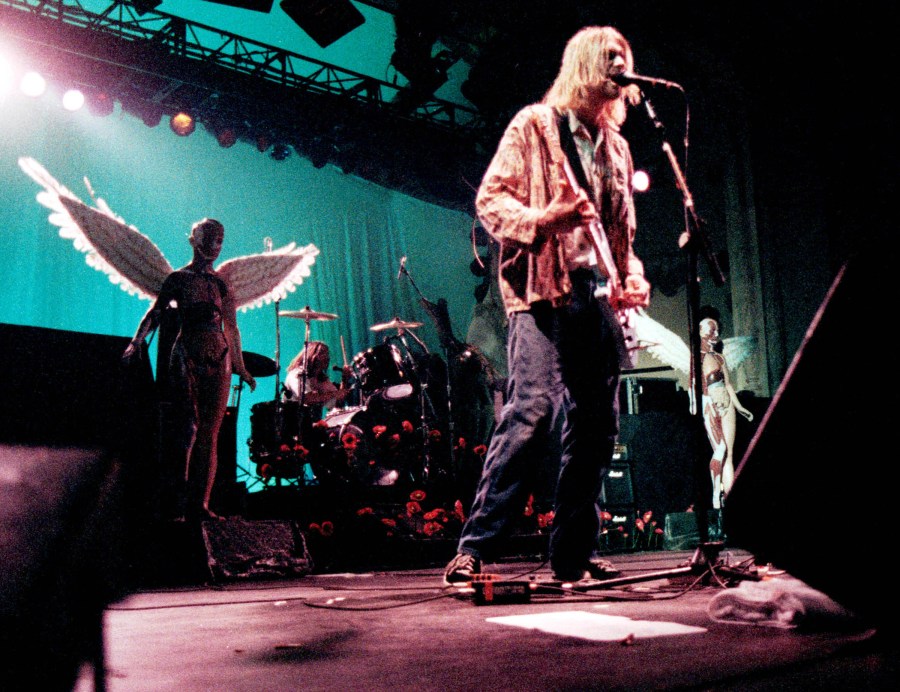
The song and accompanying video brought an end to the hair metal and stadium rock that dominated the '80s. The grunge movement was born, thanks to the video's heavy rotation on MTV, and the popular song became an anthem for apathetic kids in Generation X.
Full of adrenaline-fueled energy and a smooth guitar solo masterpiece faithful to the song's melody, "Smells Like Teen Spirit" stands the test of time as a perfect song to headbang to with the windows down and the volume up.
Pulp, "Common People" (1995)
"Common People" by Pulp raised the banner for alternative rock and was a breakthrough instant hit soon after its release. On their face, the lyrics are about a rich girl having fun with a poor boy, but listen closer and the song cleverly communicates the reality of living broke with no safety net. The song, which would come to define the genre of Britpop, goes down easy like a real bop, but has a lot to say about class tourism and the romanticization of poverty.
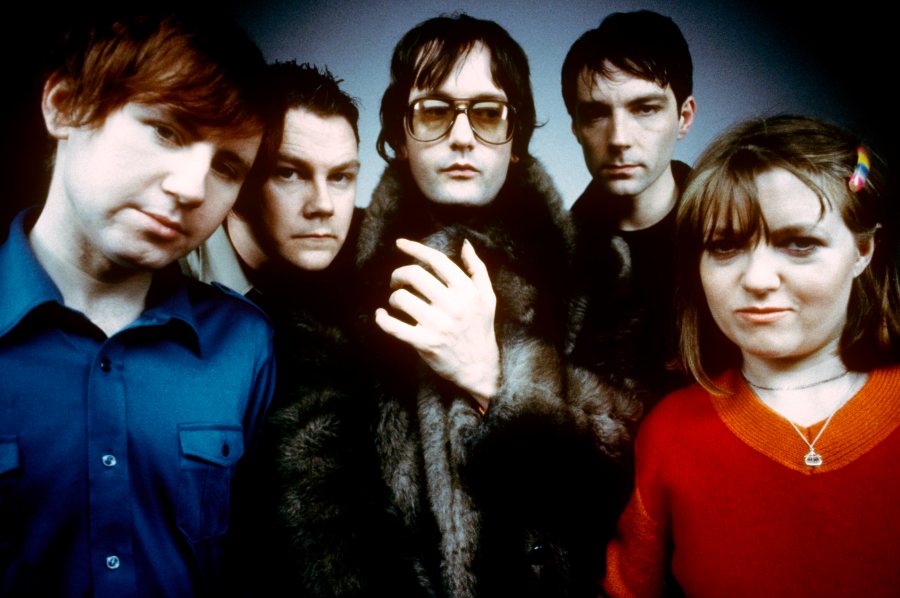
The song topped the charts of the alternative rock genre and has earned its place on your summer playlist for its catchy hook and important message.
Bill Haley, "Rock Around the Clock" (1954)
Bill Haley has the distinction of being the first musician to popularize rock and roll in the '50s. His band, Bill Haley & His Comets, sold over 60 million records worldwide thanks to hits like "Shake, Rattle and Roll" and "See You Later, Alligator".
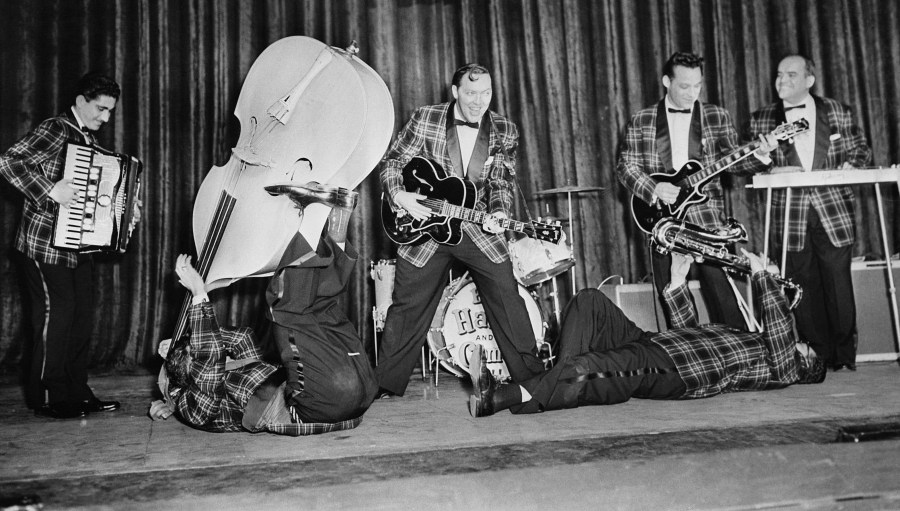
The song that gained the band major popularity was "Rock Around the Clock". While it wasn't the first rock song to hit the charts, it was anthemic for a rising generation of '50s rebellious youths. The song seemed destined for obscurity upon its release, until the 10-year-old son of famous actor Glenn Ford played the song for his father, who decided to use the song for the opening credits of his new movie, "Blackboard Jungle." The rest, as they say, is history.
Chuck Berry, "Johnny B. Goode" (1958)
Berry's "Johnny B. Goode" told the story of a boy from New Orleans who grew up to lead a rock band. In reality, Berry used "Johnny" to sing about his own rebellious experiences as one of the world's first rock stars. It was the first taste of musicians singing about the extravagant lifestyle that accompanies famous singers.
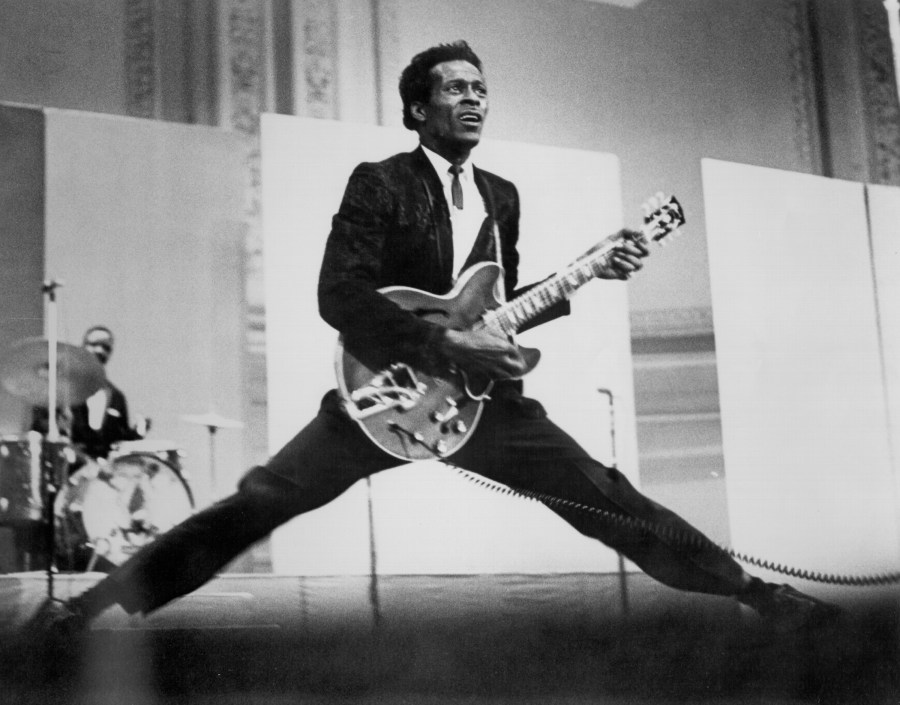
Berry wrote four other songs about his rock and roll persona, 'Johnny B. Goode,' to continue telling stories about becoming a rock star. The name for his persona didn't come out of anywhere, either. Berry was born at 2520 Goode Avenue, and he took further inspiration from his piano player, Johnnie Johnson.
Ray Charles, "What'd I Say" (1959)
Widely credited as one of the first soul songs, "What'd I Say" started out as an improvisation during a concert. With a little time left during a set, the enthusiastic crowd encouraged Charles and the band to keep playing (and to record the excitable energy).
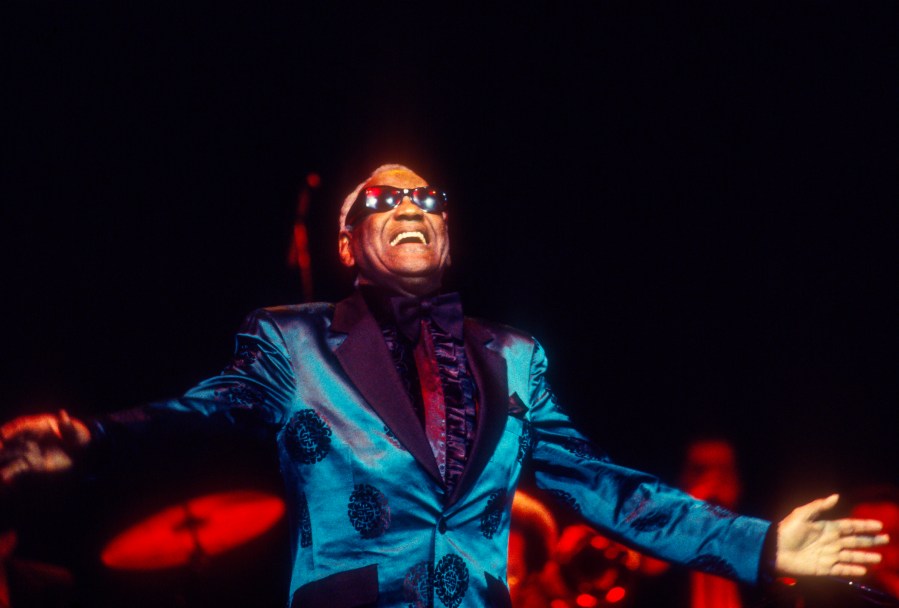
The song's exciting blend of gospel, rhumba, rock and rhythm and blues launched Charles into the mainstream radio stations. Following Little Richard's "Tutti Frutti", it caused major controversy, as the sexual implication in the lyrics of the song's second half made it one of the most explicit songs on the radio.
The Beatles, "I Wanna Hold Your Hand" (1964)
After John F. Kennedy's assassination, the country was in a collective lull. Out of nowhere, Brit-pop phenomenon the Beatles crossed over to the United States with upbeat, positive sounds. The world was ready to feel happy again when The Beatles stepped out on the scene.
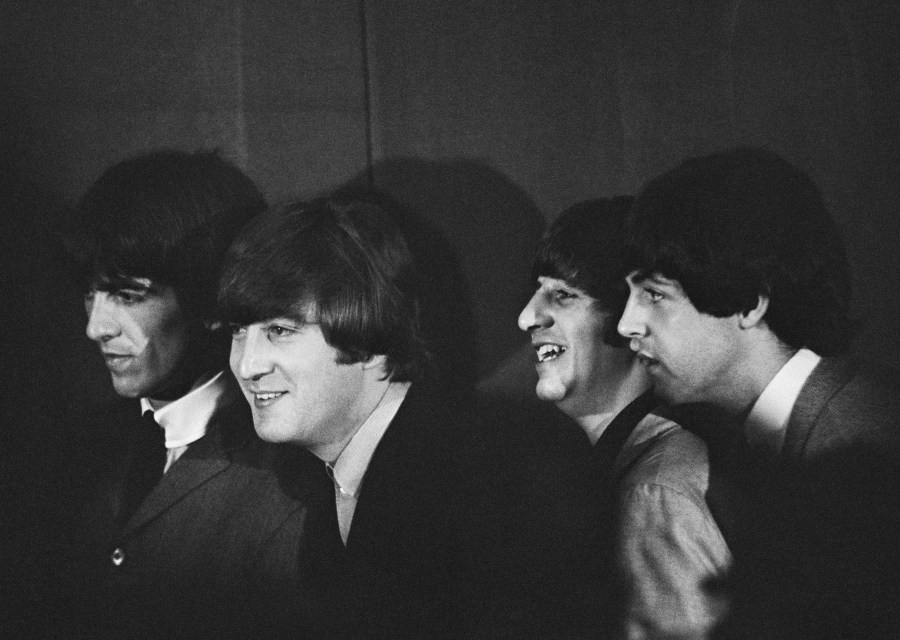
The mega-hit "I Wanna Hold Your Hand" was their first No. 1 single on Billboard's Hot 100 chart. The country was still reeling from the loss of Kennedy, but their infectious hit turned up America's collective energy. When they performed their upbeat music on The Ed Sullivan Show, 70 million viewers turned in to see the instant superstars. The Beatle's would go on to become prominent voices in the anti-war movement during the Vietnam war.
Jefferson Airplane, "White Rabbit" (1967)
This song was the perfect representation of the end of the innocence of the '60s. The band's tongue-in-cheek retelling of the children's story "Alice in Wonderland" mixed with a lot of double entendre made this far-out song an instant classic.
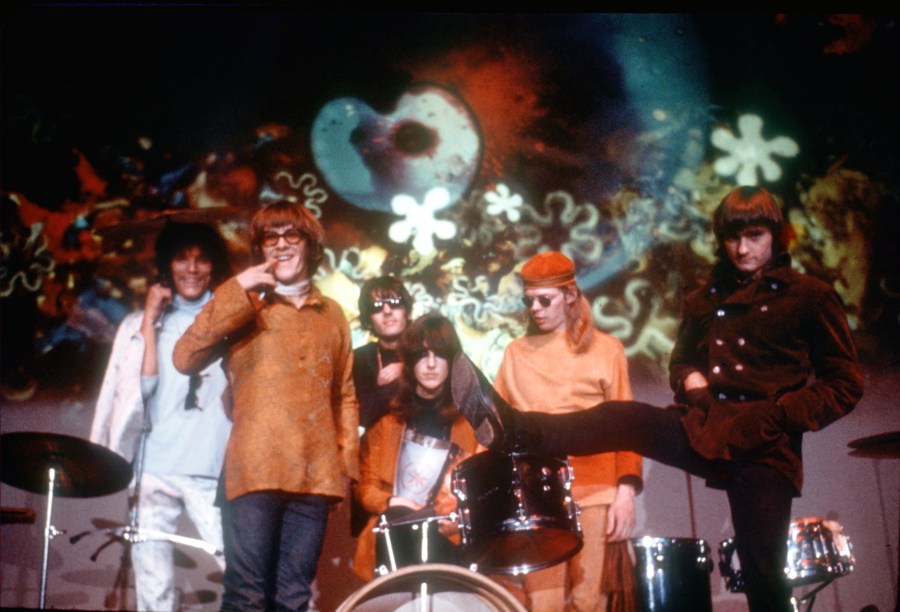
During the late '60s, a disillusioned generation experimented with hallucinogens to escape the threatening Vietnam War. When Jefferson Airplane released this song, it was the first big radio hit to find a way to coyly address the growing trend of using drugs to escape "down the rabbit hole."
David Bowie, "Rebel Rebel" (1974)
As punk and arena rock were still gaining steam, glam rock was a force in the '70s, and Bowie was its fearless leader. Bowie was the first headlining music artist to experiment with personas and gender-bending. Throughout his legendary career, Bowie continued to push boundaries.
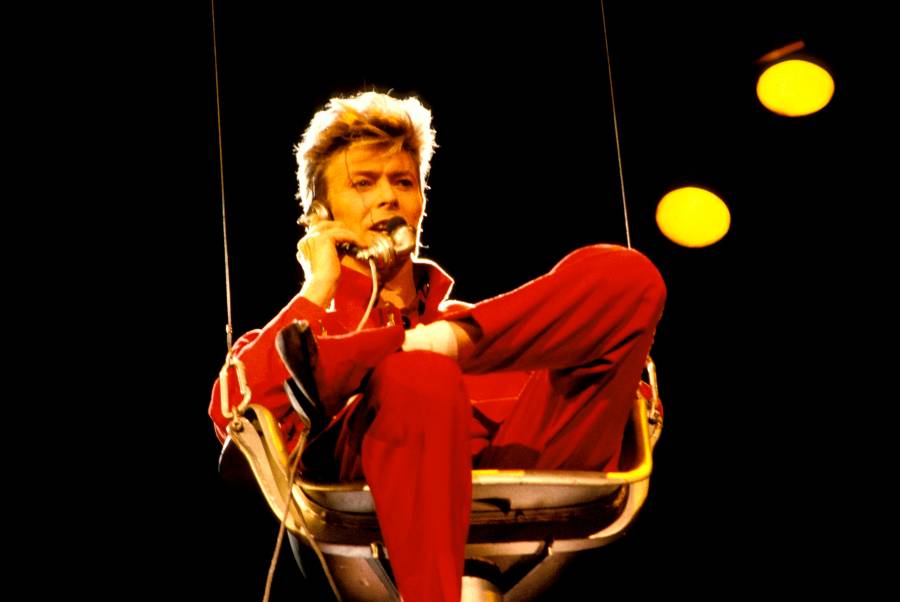
"Rebel Rebel" is a standout track that fully encapsulates Bowie's rebellious edge. With each of his personas, like Ziggy Stardust, Aladdin Sane and The Thin White Duke, Bowie incorporated outrageous outfits and sounds to amplify his glamorous music. He also paved the way for other gender-bending performers like Grace Jones, Annie Lennox and Marilyn Manson.
Donna Summer, "I Feel Love" (1977)
Summer's "I Feel Love" was one of the most popular songs of the disco era of the '70s. While there are many other songs that are classics from the disco era, the Library of Congress added "I Feel Love" to the National Recording Registry as "culturally, historically, or aesthetically important."
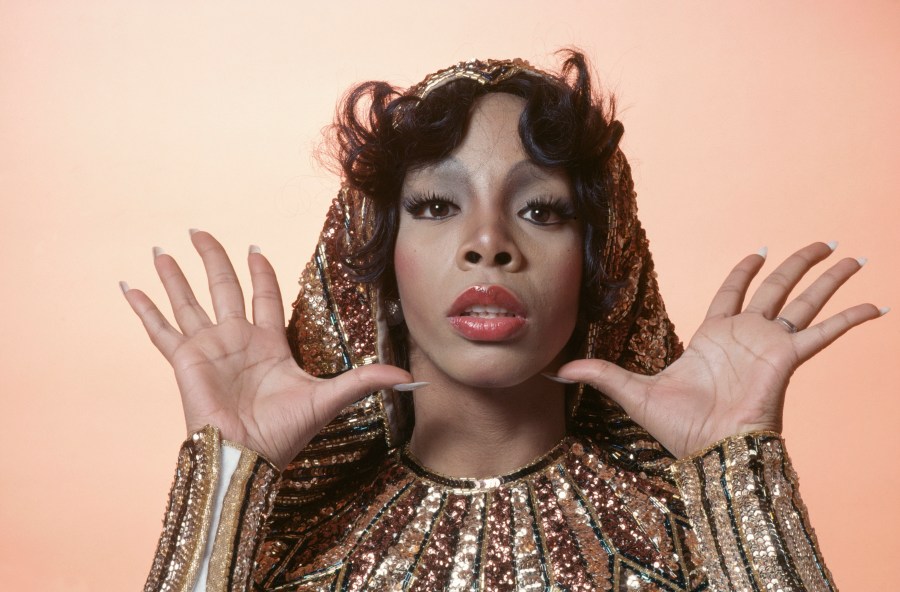
"I Feel Love" is widely credited with originating E.D.M. (electronic dance music). While other dance songs were recorded with orchestras, the production team produced the song with a synthesizer. Respected music producer Brian Eno declared after hearing the song, "Look no further. This single is going to change the sound of club music for the next 15 years."
Grandmaster Flash and the Furious Five, "The Message" (1982)
"The Message" by Grandmaster Flash and the Furious Five is considered to be one of the first rap songs ever made. As rap music was finding its footing, most early rap songs consisted of boasting about success or a series of party chants.
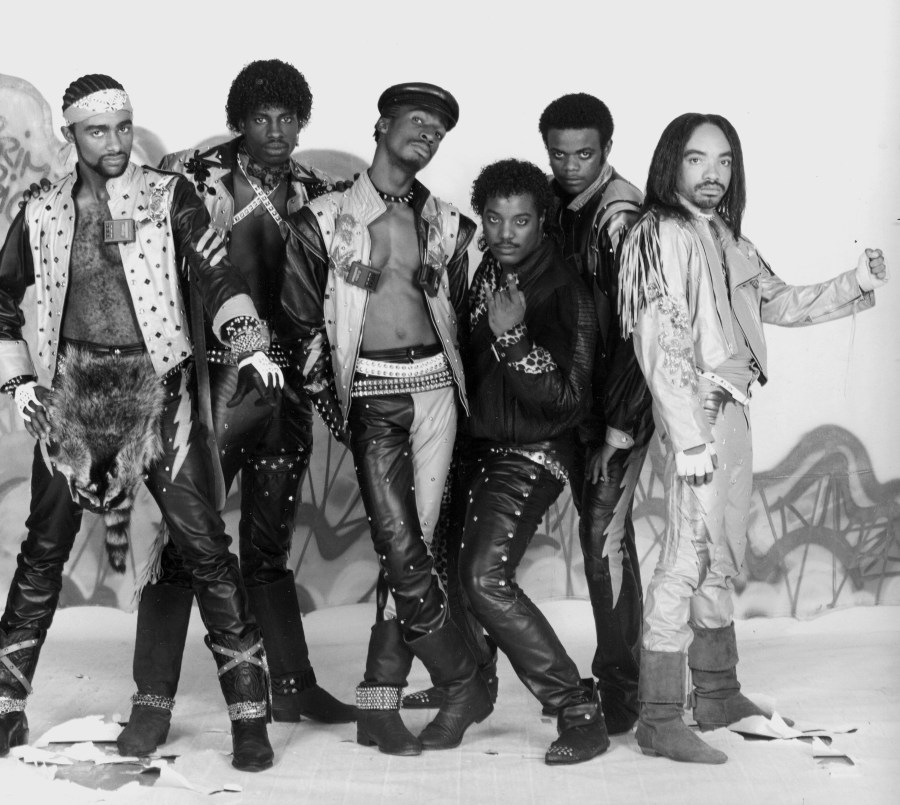
"The Message" stands out for being the first rap song that told the truth about the struggle of early '80s inner-city life in America. The idea of rapping about daily struggles and injustice was later picked up by legendary rappers including Jay-Z, Notorious B.I.G. and even Rage Against the Machine.
Michael Jackson, "Billie Jean" (1983)
After the success of his album "Off the Wall," Jackson's second single from his follow up album "Thriller" was incredibly successful on the radio as well as on the budding MTV network. It was the first music video of a black musician to be aired on rotation on MTV.
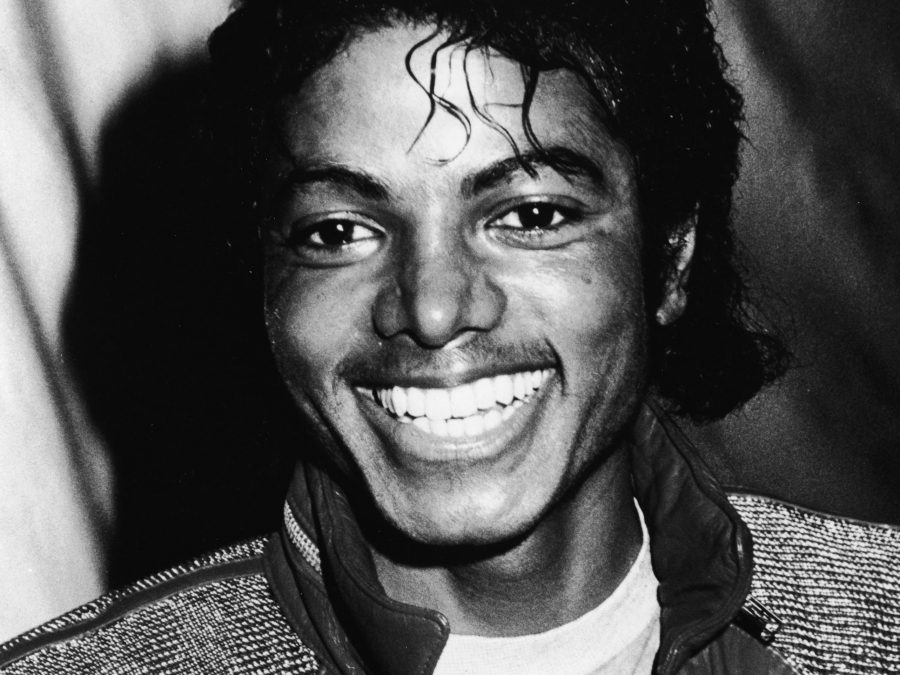
The bass-driven arrangement in "Billy Jean" helped pioneer sleek, post-soul pop music. The song became Jackson's best selling solo single, topping the Billboard Hot 100 chart for seven weeks. It also helped "Thriller" become the greatest selling album of all time.
Madonna, "Like a Virgin" (1984)
While Madonna was already known for her upbeat dance music, "Like a Virgin" was the first song in Madonna's catalog to top the charts. Through frequent album and video releases, Madonna created a whole new kind of female superstar. This song in particular also launched her career-spanning commitment to blend religion with sexuality.
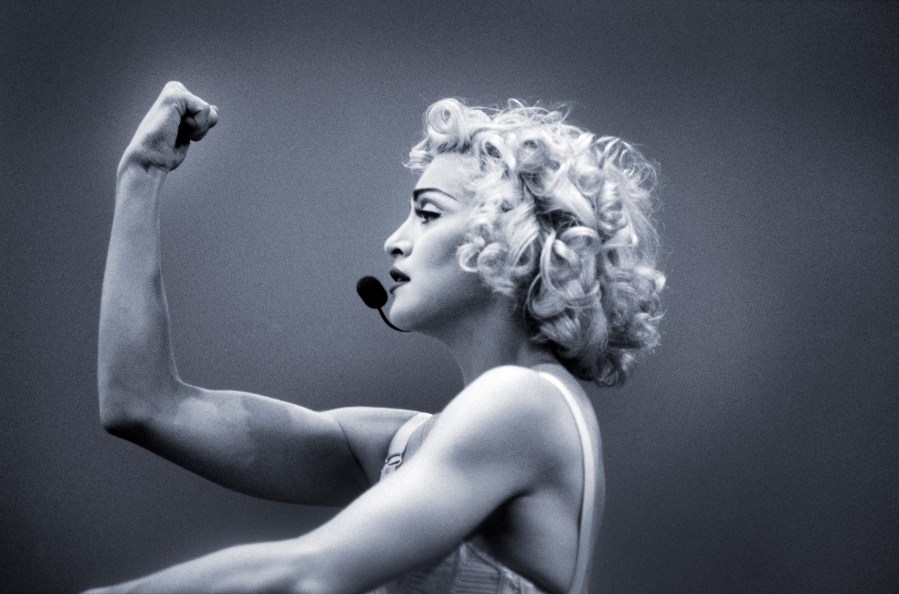
Family and religious organizations were up in arms over the combinations of religious symbolism and virginal wedding attire worn in the single's music video and live performances. Blending pop music with controversy became a recipe for success for the countless female pop singers to follow in her footsteps, earning the title of Madonna-Wannabes.
Whitney Houston, "I Will Always Love You" (1992)
Houston's cover of Dolly Parton's country song remains the best-selling single by a woman in music history. Pop music got a taste of gospel with Houston's booming voice and haunting tone. The instantly recognizable ballad solidified her as a legend, and "The Bodyguard" soundtrack, for which she recorded a new version of the song, remains one of the most successful soundtrack albums of all time.
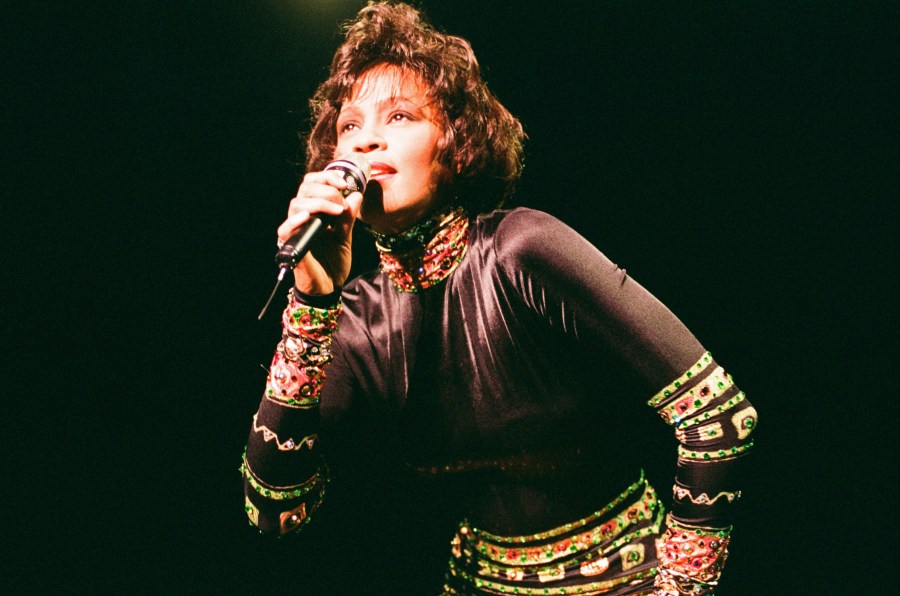
The song spent 14 weeks at number one on the Billboard Hot 100 chart and is one of the best-selling singles of all time. After Houston's untimely death on Feb. 11, 2012, the song topped the US iTunes charts, and the single returned to the Billboard Hot 100 charts at number three.
Christina Aguilera, "Beautiful" (2002)
Aguilera's "Stripped," the follow up album to her bubblegum pop debut, was a sharp contrast to the manufactured, innocent image that many pop stars had at the time. She combined her pop roots with soul, hip hop, metal, rock and roll, gospel and Latin into her album. After denouncing her manufactured innocence with her outrageous "Dirrty" video, Aguilera was ready to get serious.
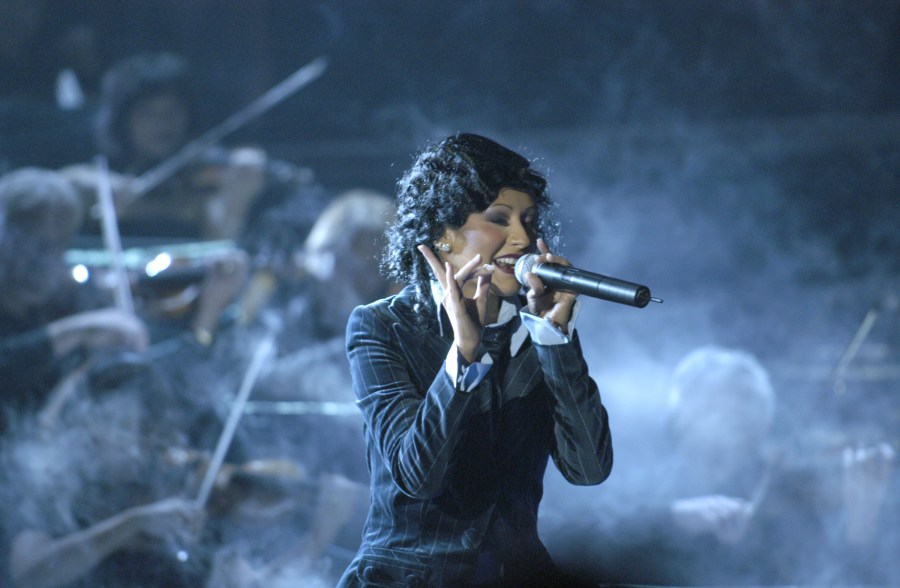
Next, Aguilera released "Beautiful," the ultimate pop song about self-empowerment. Its video included imagery of a gay couple kissing in public and a trans woman getting dressed. Both of these visuals were very controversial at the time but made the song an instant LGBTQ anthem. Years later, pop stars like Ariana Grande, Demi Lovato, and Selena Gomez credit Aguilera for inspiring them to sing about female and LGBTQ empowerment.
Gnarls Barkley, "Crazy" (2006)
"Crazy" is widely credited as the first universal hit song in the new millennium. It blended pop, rock, hip-hop, alternative and many other genres to become one of the most radio-friendly songs across all genres. This is especially impressive because, after the new millennium, the internet gave people the power to explore genres rarely played on the radio.
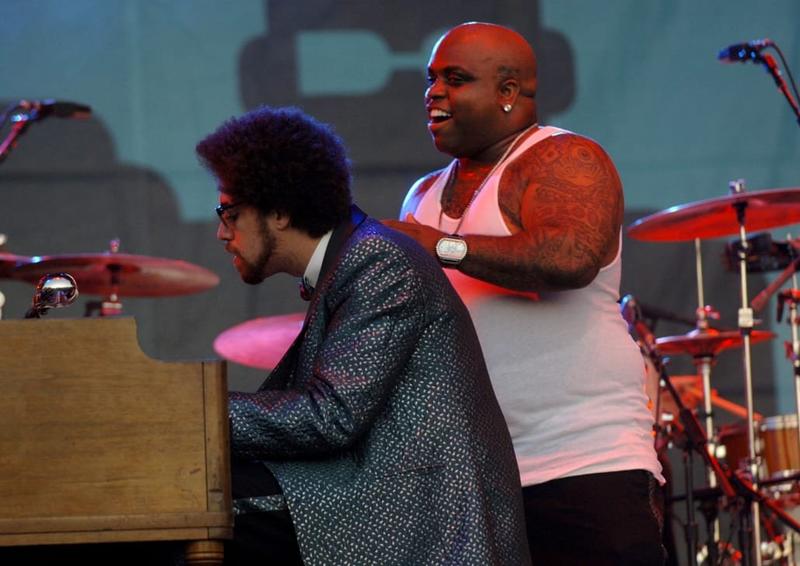
The song also started the trend of giving more credit to the producer behind the music. Gnarls Barkley member Danger Mouse became a household name along with the duo's singer, Cee Lo Green. In the following years, many more producers and DJs would get top billing when songs were released to the public.
Amy Winehouse, "Rehab" (2006)
At a time when the internet and photographers had the power to extensively track the lives of celebrities and musicians, Winehouse's tragic but celebratory song "Rehab" came out. Not only did it reintroduce Motown and soul sounds to mainstream radio for years to come, but it openly addressed the singer's personal struggle with drugs and alcohol.

The honesty in her lyrics and catchy chorus made it a worldwide hit at a time when celebrities frequently checked into and out of rehab under the public eye. Unfortunately for Winehouse, the song and her dangerous lifestyle made her vulnerable to the internet tabloids and paparazzi who followed her every troubling turn.
M.I.A., "Paper Planes" (2008)
A surprise hit for Sri-Lankan rapper M.I.A, "Paper Planes" received praise for covering subject matter often ignored on mainstream radio stations. The song and accompanying video satirize American perceptions of visa-seeking foreigners and immigrants from Third World nations.
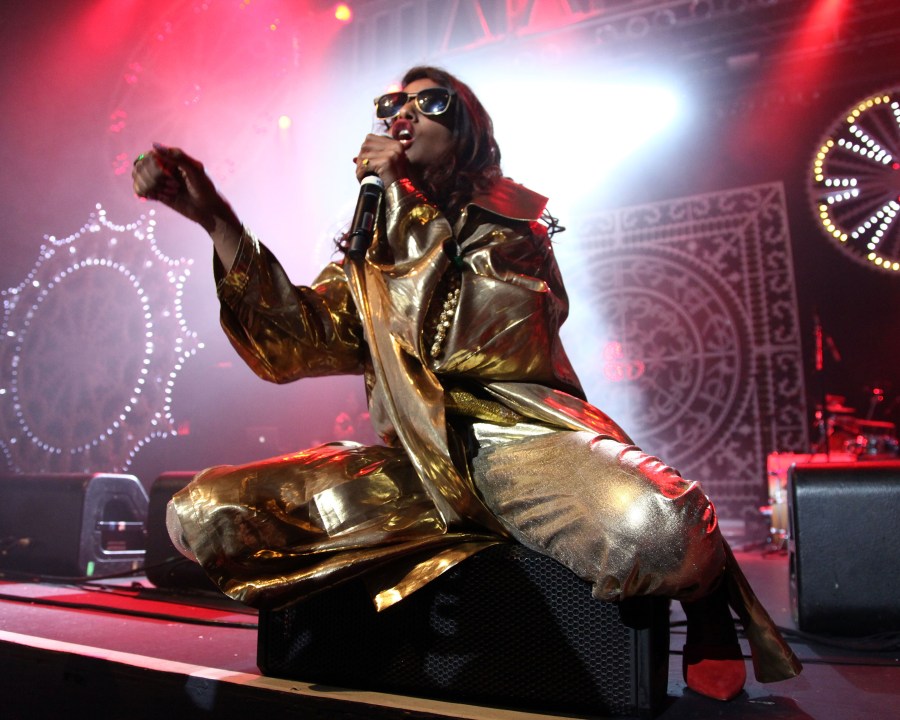
With a chorus that includes a children's choir, African rhythms, a sample from The Clash and gunshots, the unconventional song gave a voice to immigrants and refugees on American airwaves. M.I.A. further helped American airwaves include artists from other countries, helping future culture-blending artists like ZAYN, BTS and Rosalía.
Childish Gambino, "This is America" (2018)
Purposeful rap was back in a big way in 2018. Gambino's rap/gospel song became an instant protest anthem, covering gun violence and mass shootings, along with longstanding racism and discrimination against African Americans. Gambino brought several rappers into the song, including 21 Savage, Young Thug, Quavo and others.
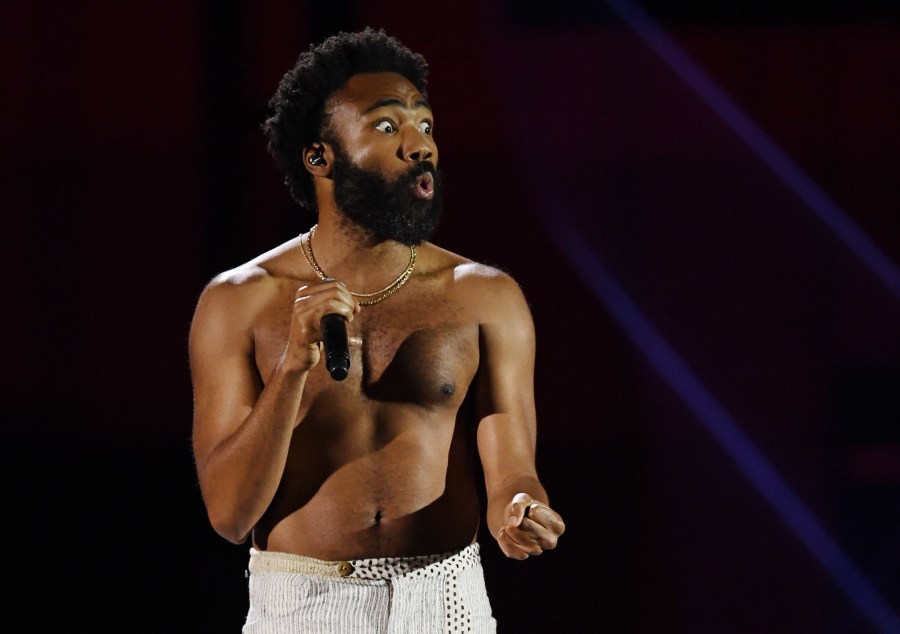
The accompanying video includes a series of haunting portrayals of social injustices towards African Americans. The internet spent weeks watching the video, attempting to decode its symbolic imagery. It lead to several thought pieces that tried to make sense of how the violent, fast-paced video represented America's violent present.
Source: https://www.ask.com/culture/history-making-songs-for-your-summer-throwback-playlist?utm_content=params%3Ao%3D740004%26ad%3DdirN%26qo%3DserpIndex&ueid=51dc7187-2e0d-4054-8c11-3d33a238031a
0 Response to "Its the Summer Time and Living is Easy Song"
Post a Comment